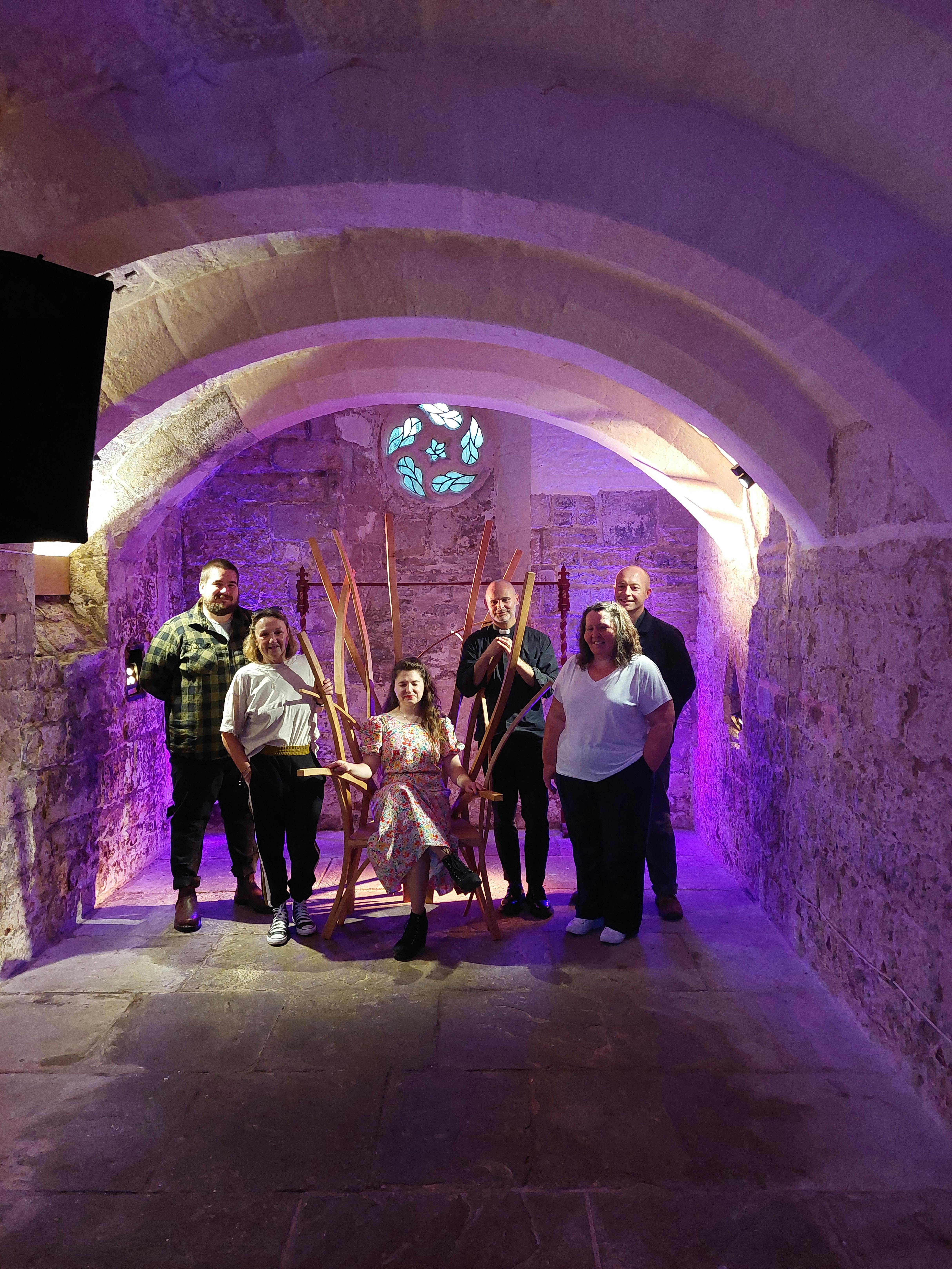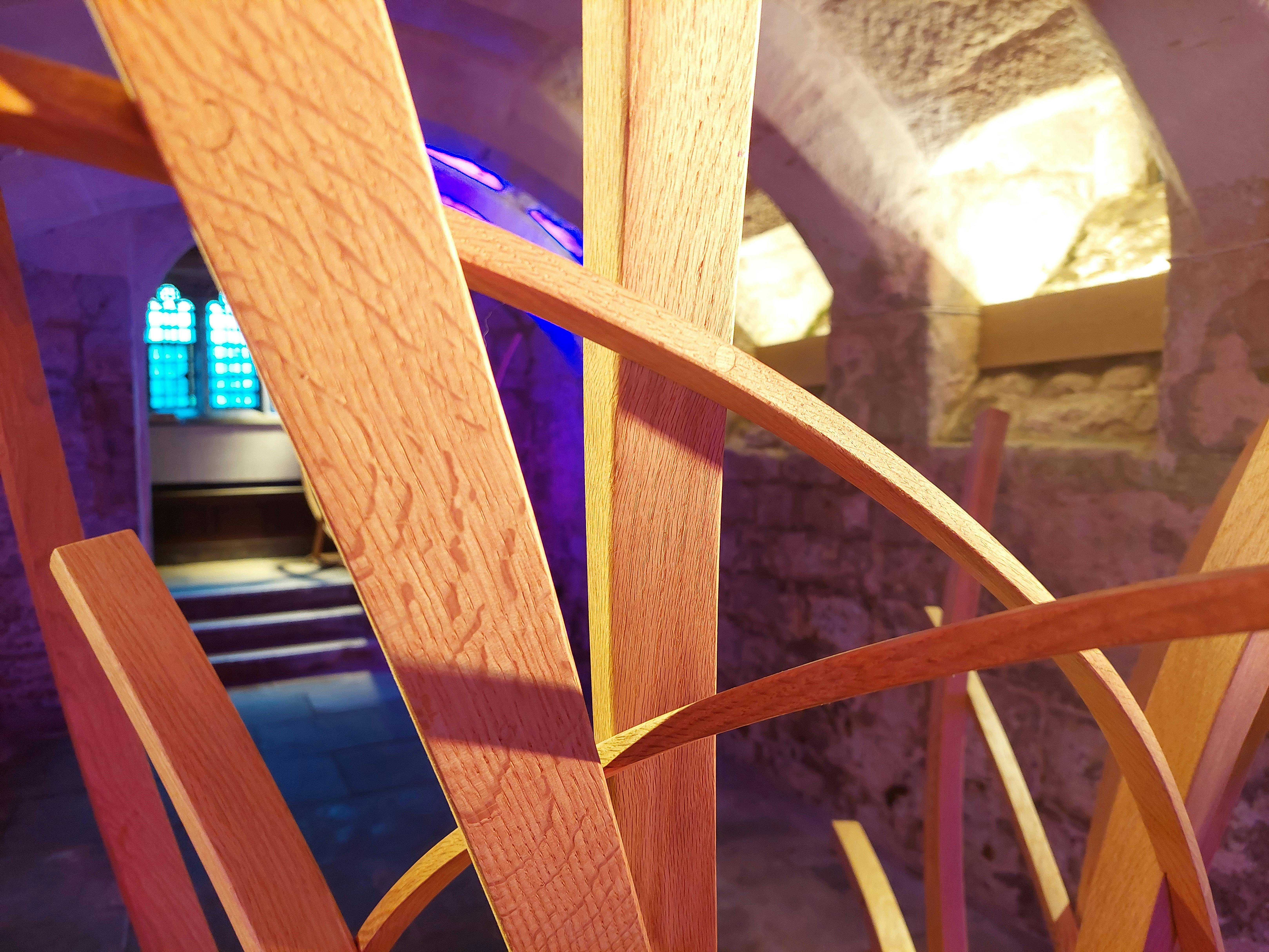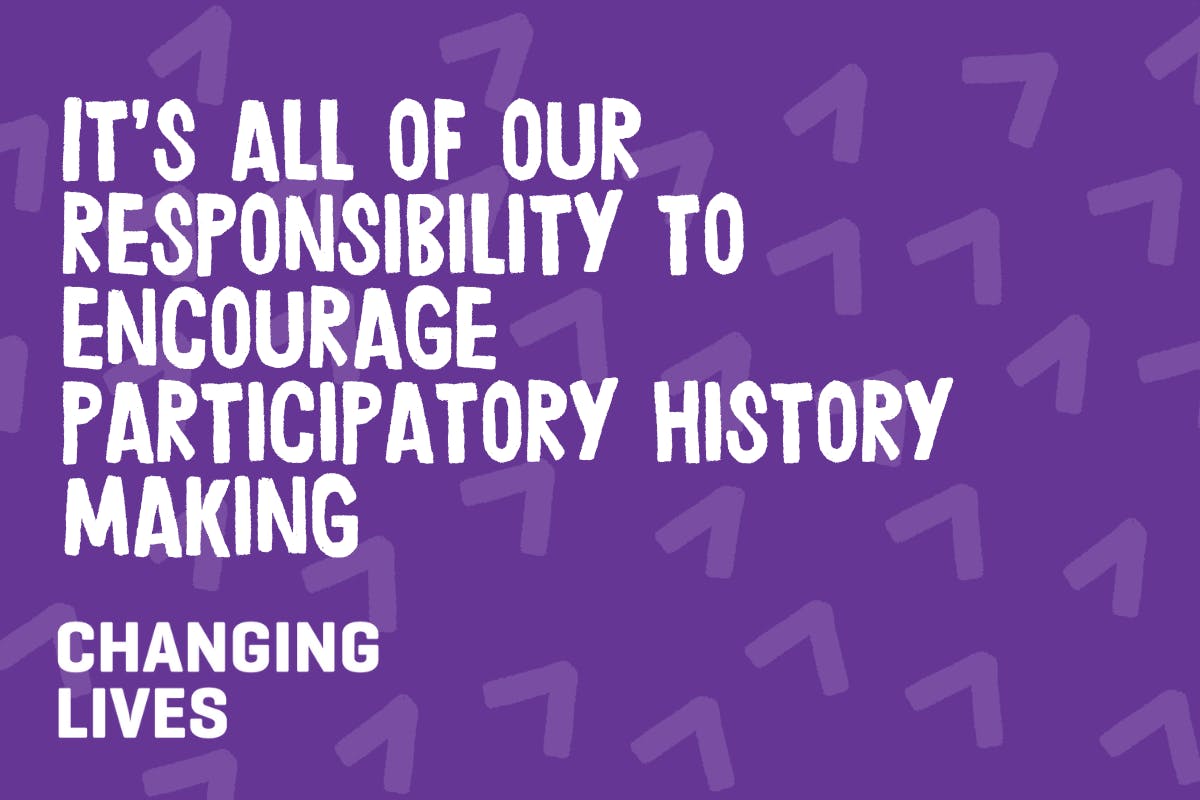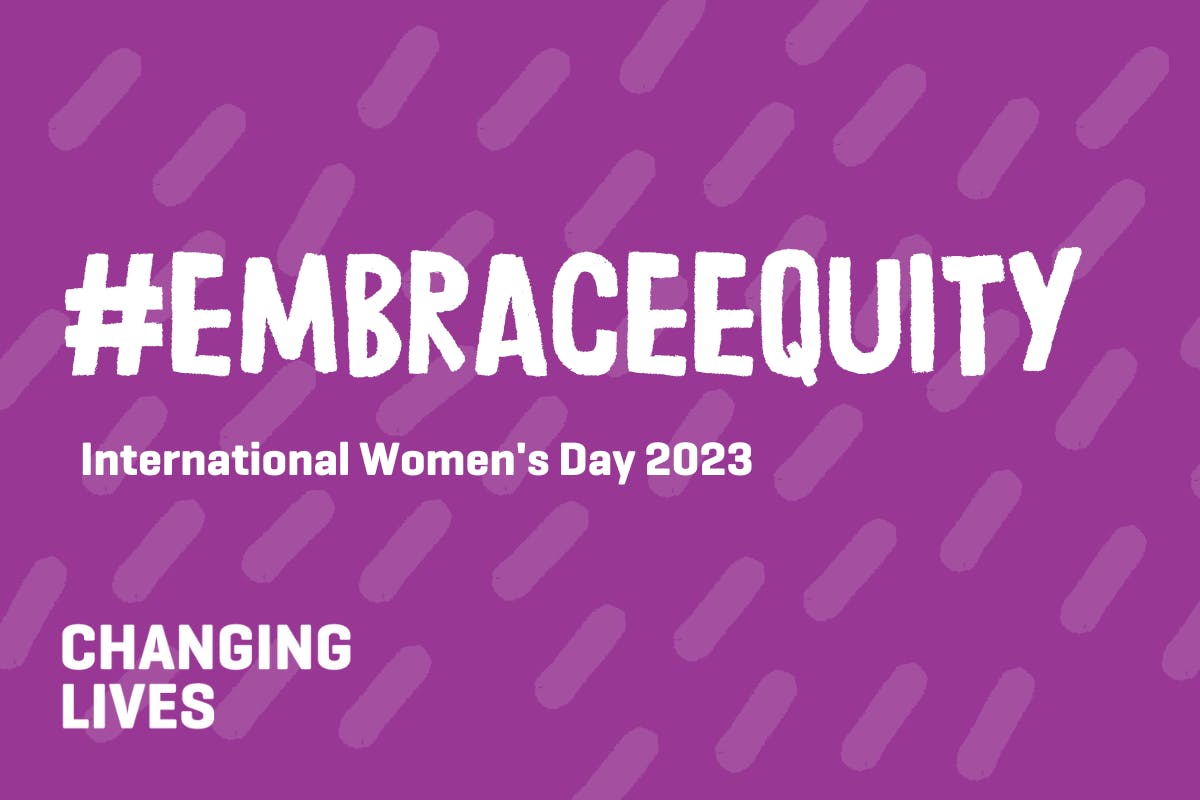Deputy CEO of Changing Lives Becky Elton discusses the launch of the Story Chair, what makes it special, and the important role of providing creative spaces through trauma-informed care.
Friday saw the launch of Story Chair at Newcastle Cathedral – a powerful partnership between Changing Lives, the women who use our services, Northumbria University, the Cathedral and the National Trust, supported by Northumbria Probation, the Ministry of Justice and the British Academy.
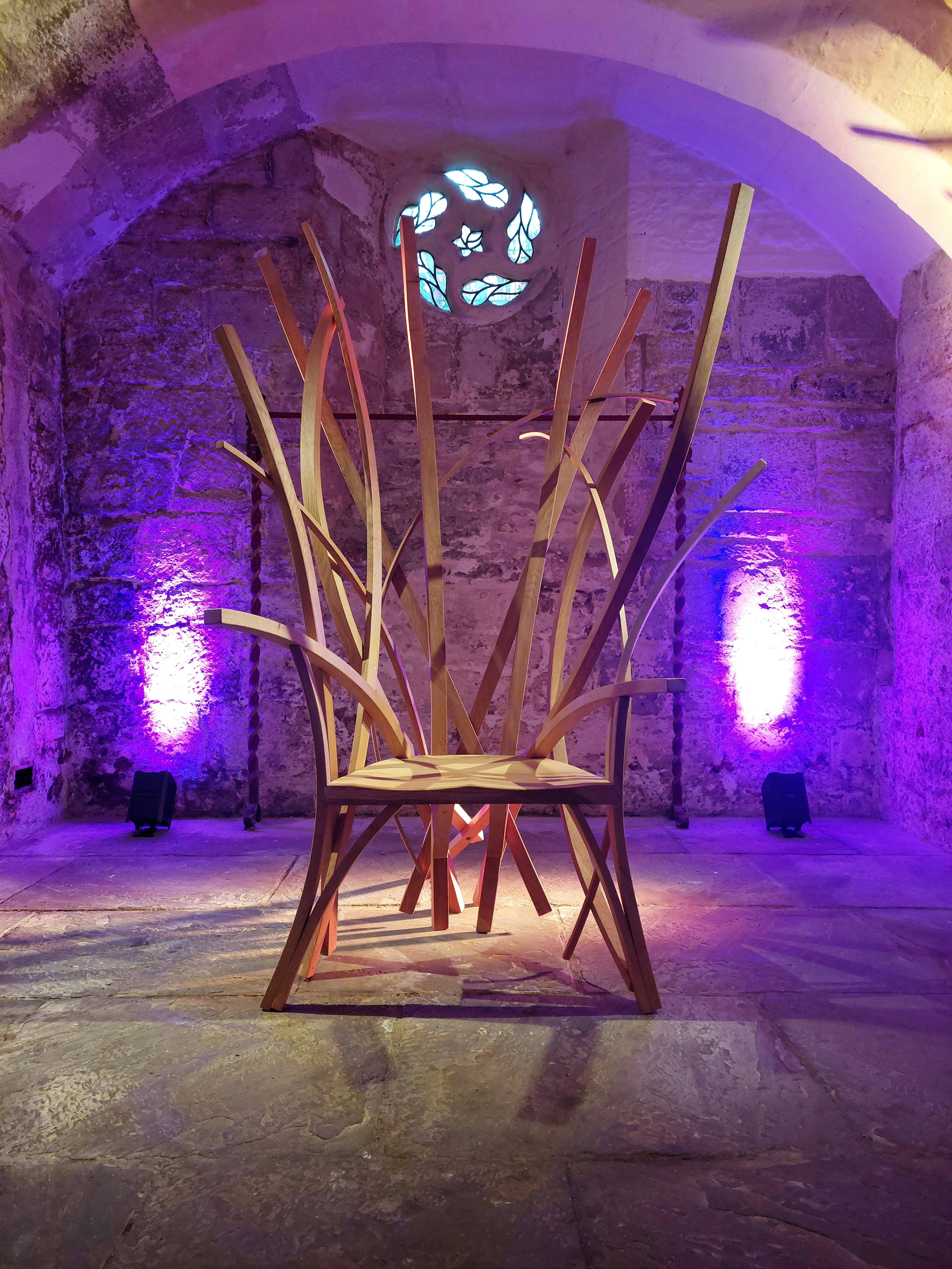

So what makes Story Chair so special? One of the stories I often tell comes from our women’s criminal justice services, but could apply to each and every one of Changing Lives services and the people we work with. The story is of one of Changing Lives workers asking a group of women where they’d like to go out for the day and suggesting a local museum.
The women were aghast at the suggestion, not because they didn’t want to go, but because museums weren’t for people like them. So, of course, that’s where they went.
But this isn’t a story about how great Changing Lives teams are for taking people to museums.
It’s a story about the right to be in public, creative, cultural spaces.
It’s a story about building feelings of belonging in places where you are not the sum of your problems, no matter how challenging the times are that you’re facing.
Changing Lives has many years experience supporting women and children, from grassroots local services that were developed by women, for women. We work from feminist values and beliefs. And believe that;
- Women and children should not be defined by the multiple disadvantages they experience or by any associated behaviours, but that they are resilient individuals who deserve to be treated with respect, care, and empathy.
- Trauma informed and gender responsive services are vital to helping women feel safe and recover from abuse and violence.
- Every woman and child are unique and individual. It is crucial that our services acknowledge diversity and that we are inclusive of different sexualities, ethnicities, gender identities and cultures.
Changing Lives supports women in three specialist areas:
- Adult women who are targeted, exploited and groomed for sexual abuse.
- Women with experience of the Criminal Justice System
- Domestic abuse, which affects the lives of many women and children supported by Changing Lives services.
And we also support women across our homelessness, recovery and wellbeing and employment services, and believe deeply in the importance of specific services or service offers for women.
Many women who access our support will repeatedly talk about the multiple disadvantages they experience, including being affected by addictions, homelessness, crime, abuse and exploitation, poverty, and social exclusion.
At Changing Lives, we believe that by using trauma informed and trauma responsive approaches our staff can fully understand women and their families and challenge the assumptions that women are ‘too complex’ to support.
At Changing Lives we strive to be more that ‘just a service’. We talk about Being, Becoming, Belonging and Beyond to put the people we work with at the centre of everything we do.
Being reflects the importance of building trust, creating environments in which people feel safe and starting to build a vision for the future.
Becoming is about helping people understand the experiences and trauma they have been subject to and helping to validate these and identify their own strengths.
Belonging helps us to think about creating spaces where people feel included and can belong, and how we help people find other places and communities to belong as they move away from services.
And Beyond reflects the work we do to advocate for people and work in partnership to both help people move towards a fulfilling life and to influence the wider system so that we all better understand and support people and prevent the next generation from needing our services.
Story Chair encompasses all of these elements. The importance of having safe, protected and nourishing spaces in which women can find peer support and express themselves in different ways.
The use of creativity to understand your own story and process what’s happened to you.
The confidence to not only come into a building that you might not think is for you, but also to connect to its history and explore ideas.
And a way for women to raise their own voices and effect change in different organisations.
Creative spaces are also important for our teams. Its easy in our jobs to fall in to a mindset that we need to fix or save people. And we hear multiple traumatic stories which can be emotionally tough.
By working in different ways and using creativity we can go on the journey with people, see the strength in being vulnerable and use these skills to both cope with our own feelings and help others.
Story Chair is just one example of how our Women’s Services are developing theory and research on how art, design, heritage and culture-based interventions can impact on women's health and well-being.
We talk about a ‘smart, not soft’ approach that is significant in addressing women’s trauma.
It was brilliant to see so many people on Friday who were deeply touched by the Story Chair and could see for themselves the importance of our services by and for women, the impact of access to cultural spaces and creativity and to learn about the experiences of women in the criminal justice system and how we can relate to people as people, not problems or labels.
You can see the Story Chair in Newcastle Cathedral until the end of September 2023, and then at Seaton Delaval Hall. After that it will be going on tour, watch this space for more details.
